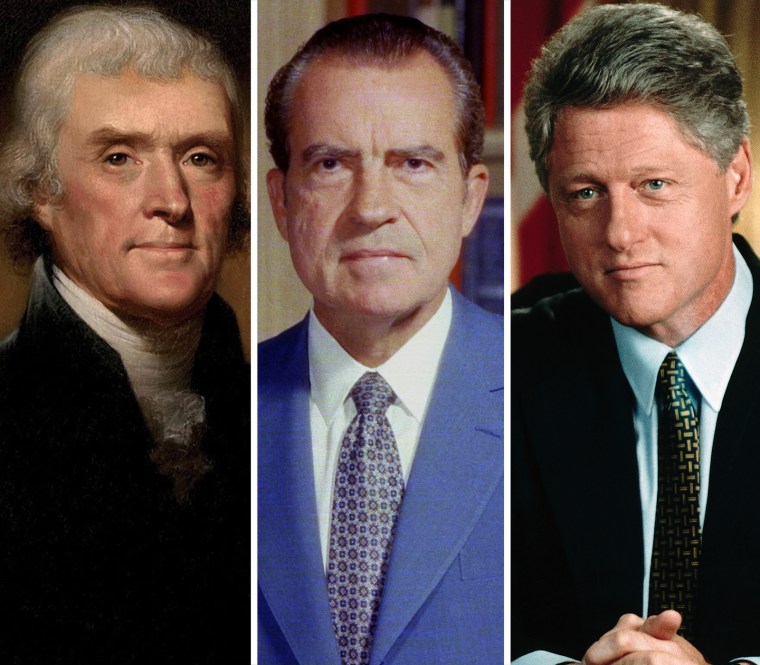WASHINGTON — Presidents have been subpoenaed before — Thomas Jefferson for documents, Richard Nixon for tapes and Bill Clinton for testimony.
Now, special counsel Robert Mueller raised the prospect of subpoenaing President Donald Trump to answer questions in his investigation into alleged Russian meddling in the 2016 election, The Washington Post reported Tuesday. The Post said Mueller brought up trying to compel the president to testify before a grand jury in a meeting with Trump's lawyers in early March.
Here's what's happened when past presidents have been subpoenaed:
— Jefferson declined to comply but ultimately produced some material in the treason trial of his former vice president, Aaron Burr.
— Nixon resigned and the issue went away.
— The Clinton subpoena was withdrawn when he agreed to testify voluntarily.
The Supreme Court has never directly addressed whether a president can refuse to cooperate in a criminal investigation potentially involving his own conduct. That's because no president has ever fought such a request.
But in two other cases, the court has suggested that there's no authority for the president to decline.
Nixon failed when he tried to shield his White House tapes from the Watergate prosecutor who wanted them as evidence in charging presidential aides with crimes related to the scandal. The court rejected Nixon's claim that the recordings were protected by executive privilege.
"The president's generalized assertion of privilege must yield to the demonstrated, specific need for evidence in a pending criminal trial and the fundamental demands of due process of law in the fair administration of criminal justice," the court said in 1974.
Twenty-three years later, the Supreme Court ruled that Clinton was not immune from a lawsuit filed by Paula Jones, who accused him of sexual harassment. It is settled law, the court said, "that the president is subject to judicial process in appropriate circumstances."
While that ruling involved a civil case, the court said the need for evidence in a prosecution is even greater.
"We have made clear," the court said, "that in a criminal case the powerful interest in the 'fair administration of criminal justice' requires that the evidence be given under appropriate circumstances lest the 'very integrity of the judicial system' be eroded."
